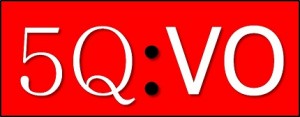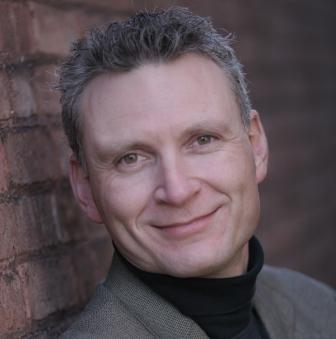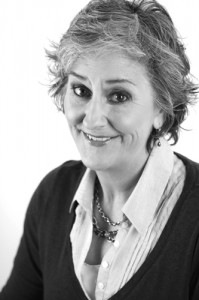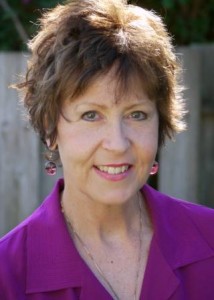5 questions for a professional voice over talent – paul strikwerda
Today’s 5 Questions for a Professional Voice Over Talent are answered by Paul Strikwerda, a professional voice-over talent based in Pennsylvania.
1. The beginning: When did you know you wanted to be a voiceover talent; how did your career begin (please include what year it started) and then when did your passion for voiceover develop into something professional?
When I was six years old, my parents gave me a Philips cassette recorder. It didn’t take long before I discovered how to capture the sound of my own voice. That’s when it all began. In 1969.
I can still see myself sitting on the front porch with a copy of “King Arthur and the Black Knight.” It would become my very first audio book. Actually, it was more of a radio drama. Around me were all sorts of self-made instruments I used for sound effects. Every character had a different voice. Every voice had a different character.
The tape I made that day was used over and over again, and eventually it broke. What didn’t break was my love for painting pictures with sound.
Eleven years later I auditioned for my first job in Hilversum, the heart of Dutch broadcasting. A public network was recruiting a group of promising teens to start producing radio and television programs. Veterans would coach them in all aspects of the business. I just knew I had to be part of that program.
In the years that followed, the program became part of me. I produced and presented documentaries, talk shows, music specials and radio plays. The microphone became my best friend. It was the beginning of a career in broadcasting that would take me to a number of national networks, the BBC and Radio Netherlands International.
In 1999 I made a bold decision: I would leave Holland and start a new life in the New World. In a matter of months I was represented by Mike Lemon Casting in Philadelphia. My European accent seemed to be a welcome addition to their talent pool. It took me a number of years to build a client base that would sustain a full-time voice-over career, but eventually I became the Chief Artistic Officer of a company I named Nethervoice.
2. What is the one thing you know now that you wish someone had told you when you first started out in voiceover?
If someone had warned me that this job could easily turn into an obsession, I still would have applied for it. It’s true though, but it might also have to do with my personality. When I’m passionate about something, I want to immerse myself in every aspect of it, and learn to do it well.
I realized early on that it takes more than a good voice to make a good living in this field. Success needs to be carefully planned. It’s like a flower bed that has to be protected, watered and fertilized regularly. Shit happens, and shit makes great manure.
Because I have a home studio, I’m always at work. It seems ideal (and it really is), but for someone with an obsession it can be dangerous. It’s tempting to become a boring recording recluse, who lives and breathes voice-overs. And you know me… When I don’t read and record, I write about it in my blog.
Life Coaches always advocate finding a balance between work and play. But what if your work is your play? At some point in the day, the headphones have to come off and we must leave our soundproof studio. Without sunlight, there’s no growth. Our job is just a meaningful means to an end.
3. What do you see as the biggest professional or personal obstacle you face that impacts your voiceover business and how are you working to overcome it?
I wasn’t born to toot my own horn. The Calvinistic Dutch preach modesty and frown upon anything that may be perceived as vanity. Why? Because human talents are seen as a gift from God, so we shouldn’t take too much credit for our accomplishments. Many centuries have passed since the spirit of Calvin touched this tiny country bordering Belgium, yet, some of his principles are still present in our DNA, the Dutch National Attitude.
Looking back, I really believe that this mindset kept me from promoting myself properly. But there was something else. Coming from the relatively safe world of broadcasting, I never needed to market myself. I was hired by a network to do a number of jobs, and I left it to the PR people to sing my program’s praises.
After I’d left Holland, I had to learn that it was okay to be proud of what I had achieved and use those achievements to attract business. To this day, I try to do this in a veiled way, because I don’t want to be that narcissistic “Look at ME, ME, ME” person on Facebook. Instead, I offer advice and entertainment in my blog “Double Dutch.” That’s where clients and colleagues get to know me as someone with a certain level of experience and pizzazz. Well, that’s the idea…
4. What personal trait or professional tool has helped you succeed the most in your career so far?
One thing that has helped me tremendously is a toolbox called Neuro-Linguistic Psychology. It’s a mix of positive attitudes, belief and strategies to help people design and live the life they’ve always dreamt of. That almost sound like a commercial, doesn’t it?
At the basis of NLP is the process of modeling. I’m not talking about the catwalk in Milan, but about the study of exceptional people: business tycoons, sports icons, therapists, artists etcetera.
The idea is that these people -in order to achieve something extraordinary- have set themselves up for success. They have carefully (and often unconsciously) conditioned themselves to accomplish amazing things. The question is: How did they do that?
NLP tries to break it down into bits and pieces: the ingredients of a recipe. Once the recipe is uncovered, it can be taught to almost anyone. The finest and fastest way to mastering something is to start teaching it. That’s why I eventually became an internationally certified trainer of NLP, and that’s the reason I started coaching voice talent.
5. In your development as a voice over performer, who has been the one particular individual or what has been the one piece of performance advice (maybe a key performance trick, etc.) that you felt has had the most impact on your actual voice over performance and why?
First of all: Find something that defines you but that does not limit you. In other words: you want to box yourself in, to emphasize what sets you apart, but you want that box to be big enough to attract a wide audience. If you try to be everything to everyone, you end up being nothing to no one.
In my case, I describe myself as a European Voice. Not British. Not American. Not even Dutch, even though that’s my native language. I tell my clients that I specialize in intelligent international narration. For that reason I get to do multilingual projects and jobs that require someone with a more global, neutral English accent.
Secondly: Don’t even think of reinventing the wheel. Living is learning, and learning from the best is a shortcut to success. Isn’t that what this series is all about?









